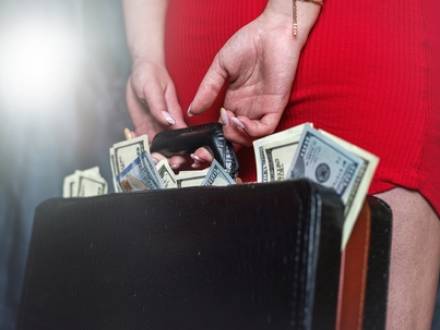Facing State Embezzlement Charges in Connecticut
 An Ellington, CT woman was recently charged with fraud and tax offenses stemming from an embezzlement scheme. The woman was employed as a bookkeeper and office manager at a law firm for twelve years. During that time, she allegedly generated hundreds of false checks to herself, forging the owner’s signature. The woman is accused of embezzling more than $580,000 in these false checks and more than $250,000 from stealing cash rental payments made to the owner of the law firm.
An Ellington, CT woman was recently charged with fraud and tax offenses stemming from an embezzlement scheme. The woman was employed as a bookkeeper and office manager at a law firm for twelve years. During that time, she allegedly generated hundreds of false checks to herself, forging the owner’s signature. The woman is accused of embezzling more than $580,000 in these false checks and more than $250,000 from stealing cash rental payments made to the owner of the law firm.
Embezzlement is considered a "white-collar crime," which generally means that crimes under this umbrella are not violent and do not cause physical harm to others. Embezzlement is the most common form of white-collar crime, which involves taking another person’s personal property after it has been entrusted to you – typically in the form of money misappropriation.
Embezzlement and other white-collar crimes can be charged federally when a state line is crossed, or the crime involves the Internet, or under state embezzlement laws. The penalties for embezzlement can be severe in the state of Connecticut. If you are facing embezzlement charges, it is extremely important that you have an experienced Stamford, CT criminal defense attorney to build a comprehensive defense on your behalf.
What Do Embezzlement Charges Require?
A key aspect of embezzlement is that the individual charged with taking another’s property had legal access before deciding to appropriate it for himself or herself. This access usually occurs through a professional relationship. Any employee who is placed in a position of trust, where he or she is expected to care for the property of another but keeps property for his or her own benefit, has committed the crime of embezzlement. There are probably dozens of ways to commit the crime of embezzlement, but some of the more common ways include:
- An employee of a non-profit organization pockets cash donations.
- A bookkeeper manipulates the payroll system to add additional payroll checks for himself or herself.
- An employee in a large corporation cashes the checks of phantom employees who are being paid.
- An employee who is in charge of payroll pays himself or herself unauthorized raises and bonuses.
- An employee submits fake invoices for payment.
What Are the Penalties for Embezzlement in Connecticut?
If the property or cash embezzled is valued up to $2,000, it will be charged as a misdemeanor offense, which is punishable by up to a year in jail and/or a fine as large as $2,000. If the property or cash embezzled is valued between $2,000 and $10,000, it will be charged as a Class D felony.
Even if the value is less than this, if the property embezzled is a vehicle, a public record, property that reveals a scientific secret, invention, or technical process, or a biological sample, microorganism, or culture, then the embezzlement is charged as a Class D felony. The penalties for a Class D felony include up to five years in prison and/or a fine of up to $5,000.
If the property or cash embezzled is valued between $10,000 and $20,000, it will be charged as a Class C felony. Stolen property owned by a telecommunications provider – even if it is below the $10,000 threshold – when the theft interrupts emergency communication services will also be charged as a Class C felony. If the owner of the stolen property is over the age of 60, blind, or physically disabled, the embezzlement will be charged as a Class C felony regardless of the value.
A Class C felony is punishable by a fine as large as $10,000, up to 10 years in prison, or both. Embezzlement of property worth more than $20,000 or public property worth more than $2,000 will be charged as a Class B felony. A Class B felony carries a potential sentence of up to 20 years in prison, a fine of up to $15,000, or both.
Contact a Fairfield County, CT Defense Lawyer
If you have been charged with embezzlement or another white-collar crime, you need a solid, vigorous defense. A Stamford, CT embezzlement attorney from Law Offices of Daniel P. Weiner is ready to help you achieve the best outcome possible. Call 203-348-5846 to schedule a free consultation.







